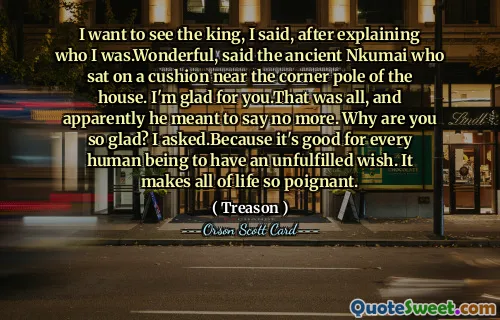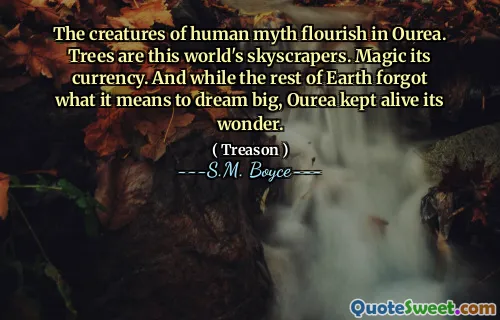
I want to see the king, I said, after explaining who I was.Wonderful, said the ancient Nkumai who sat on a cushion near the corner pole of the house. I'm glad for you.That was all, and apparently he meant to say no more. Why are you so glad? I asked.Because it's good for every human being to have an unfulfilled wish. It makes all of life so poignant.
The protagonist expresses a desire to meet the king, sharing his identity in the hope of gaining audience. The elder Nkumai responds with a vague but pleased affirmation, suggesting that unfulfilled wishes contribute meaning to life. This dialogue hints at the complexity of human desires and aspirations, emphasizing that having something to long for can enrich one's experiences.
Nkumai's perspective suggests that aspirations, even if not realized, create a depth in life. The acknowledgment of an unfulfilled wish adds an element of poignancy, reinforcing the idea that hope and yearning can be as significant as fulfillment itself. This exchange reveals themes about the nature of longing and its role in defining one's existence.

